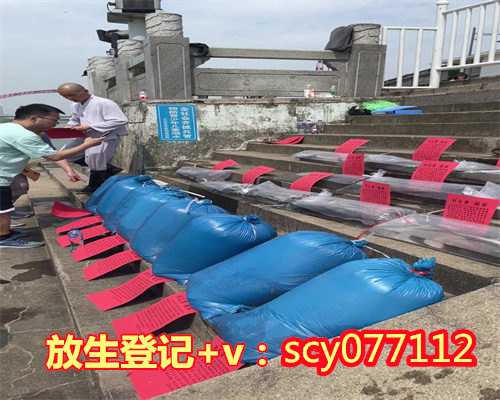念佛四十八法:46) 病中持名
46) 病中持名
Buddha Recitation in Times of Illness
A serious illness is a reminder of death. Death is the important lin k between sages and ordinary men, the pure and the impure. [In the event of terminal illness] you should develop thoughts of death (to avoid fearing it) and be diligent in reciting the Buddha’s name, awaiting death with determination. When the time comes, the light of Amitabha Buddha w ill appear to welcome and escort you, thus fulfilling your vow of rebirth in the Pure Land. If you stop reciting the Buddha’s name when you are ill, all your feelings of attachment, fear and affliction will create a turm oil in your mind, while all manner of sundry thoughts will arise. How then ca n you escape the path of Birth and Death?
Once, long ago, there was a monk who, afflicted with a serious illness, groaned loudly “help, help!” He then realized that a cultivator should remember to practice, and that to groan was wrong. Immediately, he began to recite the Buddha’s name.
However, his suffering did not diminish. Therefore, each time he groaned “help, help” he would fo low the groan with the Buddha’s name, day and night without fail.
Upon recovering, he told everyone: “when I was ill, each time I groaned, I fo lowed it with the Buddha’s name. Now that I am well, the words ‘Amitabha Buddha’ remain while the ‘Help, help’ has disappeared and is nowhere to be found. How amazing!”
This is an instance of being steadfast in the face of illness.
病者,死之机也。死者,凡圣净秽之关也,病中当作死想,勤念佛名,决定待死,必 有光明接引,遂我往生之愿,若于病中略一停想,则一切爱恋、恐怖、烦恼安排种种 杂念一齐现前,生死关头如何济事?昔有一僧病甚,呼啊耶,自觉其非,即念阿弥陀 佛,如是痛不自止,一声啊耶,一声阿弥陀佛,昼夜不绝,病愈谓人曰:我病中念啊 耶,念阿弥陀佛,今病好,阿弥陀佛尚在,啊耶二字不知何往矣!善哉此病中之精进 者也。
Commentary
No one in the world can avoid death. However, there are some people who are so afraid of death that they lose all self-respect or are so eager to live that they ignore death. What a pity!
Even if we fear death, we cannot escape it. Therefore, fear is superfluous …. Even when a relative, a very close one, dies, some persons do not dare to approach the corpse, let alone uncover the face and look at it. We should realize that death is ready for us at all times. Let us not fear it, but rather endeavor to ensure ourselves a [future] life where there will never be death: the path of liberation. Thus, we should redouble our efforts to recite the Buddha’s name and not fear death. The death of
this present body is but a temporary change of body. Count-less impermanent bodies w ill succee d one another in the future – if we have not achieved liberation.
慢跑更你的骨骼变年轻奔跑造就了人类
为了在较大范围内狩猎和找寻食物,200万年前的类人猿开始学会奔跑。在发展适合奔跑的身体特征过程中,人类渐渐丧失了那些有利于爬树的特质。美国科学家认为,牺牲生活在树上的传统能力,换来适合奔跑的一些特质,推动了现代人体体形的塑造过 程。
和猿类相比,人类腿更长、手臂更短,臀部也更大,而这些特征恰恰使得人类善于奔跑。腿长,步幅可以跨得很大;手臂短,有助于在跑动过程中保持身体平衡;大骨盘,可以更好地缓解奔跑过程中产生的震荡。科学家甚至认为,如果自然选择不利于人类奔跑,我们现在看上去可能还会很像猿类。那些跑不了几百米就气喘吁吁的人,是不是辜负了人类与生俱来的奔跑能力?
常慢跑“年轻”骨骼
研究人员对两组研究对象的骨骼变化作了对比检查,他们分别是千叶县41名年龄30岁至80岁经常慢跑的会员,以及平时不太爱运动的86名男女。最后发现,慢跑者的椎骨、股关节、腿骨和臂关节等部位的骨骼密度,均比不运动者高40%左右,这种骨骼密度接近二十几岁的骨骼状态。就男性而言,在一周内慢跑距离越长,其骨骼密度越高。至于女性,骨骼密度的高低与慢跑的历史长短有直接关系。只有对慢跑持之以恒者,才可能取得与年轻人骨骼密度相当的效果。
心脏不好傍晚跑
日本的体育生理学家提出,清晨慢跑会对心脏造成不少的压力,因为清早心脏通常未能适应完全的运动。慢跑会激发人体内分泌大量激素,使心跳速度加快。
清晨慢跑时,人的肾上腺素的分泌量比在午后或傍晚时的分泌量高出2至4倍之多。专家认为,早晨慢跑可能会引起血液凝块并且促进心力衰竭,而晚上慢跑可能减少血液凝块的趋势,并且阻止心力衰竭。



